BY SHEHU IDRIS AND VIVIAN CHIME
May 28 is set aside annually to celebrate menstrual hygiene management. It is a day when people advocate for a world where women are not limited, disenfranchised, or suppressed because of their period. This year, the theme is ‘Action and Investment in Menstrual Hygiene’.
Speaking during an outreach to distribute sanitary pads to girls at Kado Kuchi Secondary School, Abuja, Ashley Lori, founder of PadUp Africa, advised girls to be confident in their bodies.
She advised them not to be ashamed that they menstruate, stressing that it is not a taboo but a natural occurrence.
Advertisement

Lori said parents should educate their daughters on good menstrual hygiene practices and also teach boys how to be empathetic towards a woman during her menstrual period.
“We need to take action, advocate for menstrual pads for free, for good toilet facilities, and also for every girl to be confident of her body,” she said.
Advertisement
“Menstruation should be celebrated, it is not a taboo, it is nothing other than a natural phenomenon. So, mothers, teach your children what menstruation is, teach them how to protect themselves, teach them how to manage their menstrual period hygienically.”
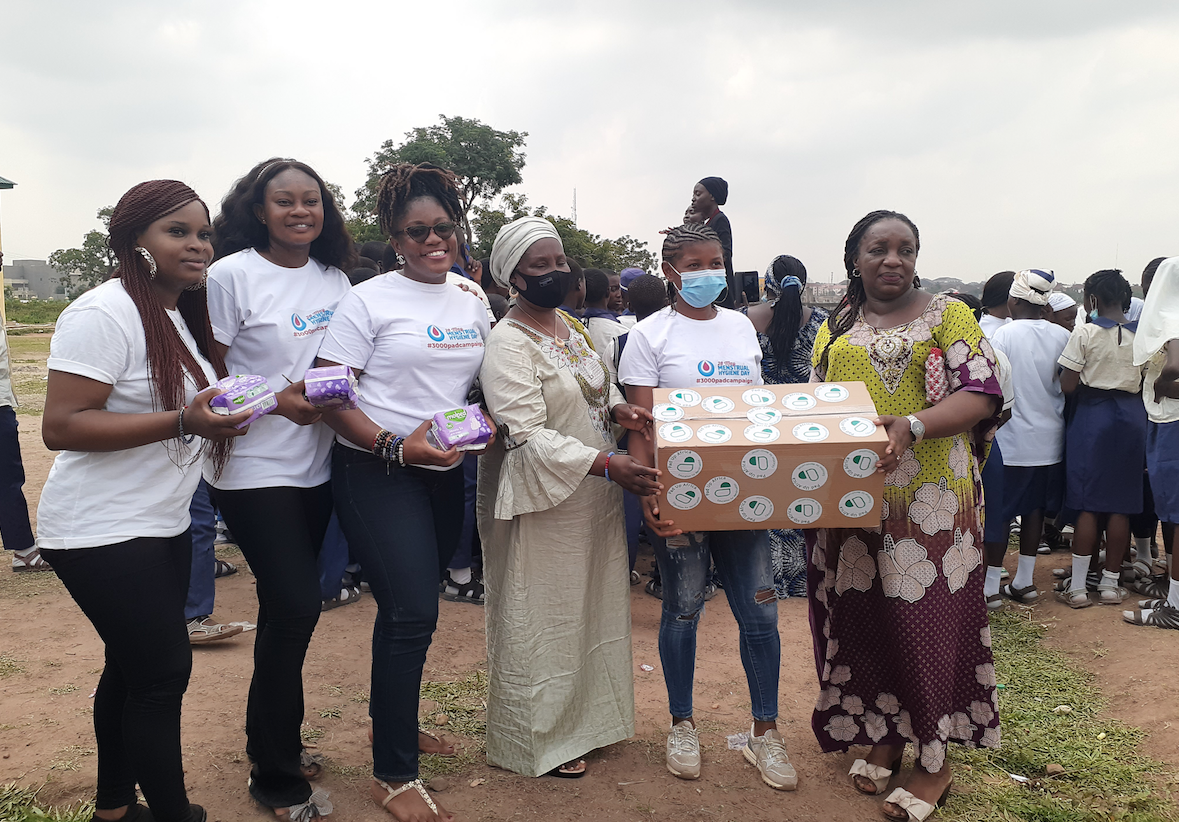
On her part, Ladi Ogbolea, project coordinator of Padup Africa, said the organisation hopes to reach more girls with the right support.
“We hope and believe that we are able to reach out to more schools. I want to do more,” Ogbolea said.
Advertisement
“We want the government to come in and support us, just as we have condoms free, we want sanitary pads to also be free for these girls.”
Chioma Obi, the vice-principal of the school, expressed gratitude to PadUp Africa for choosing the school for menstrual hygiene sensitisation.
She advised young girls not to be ashamed but happy that they are approaching womanhood.
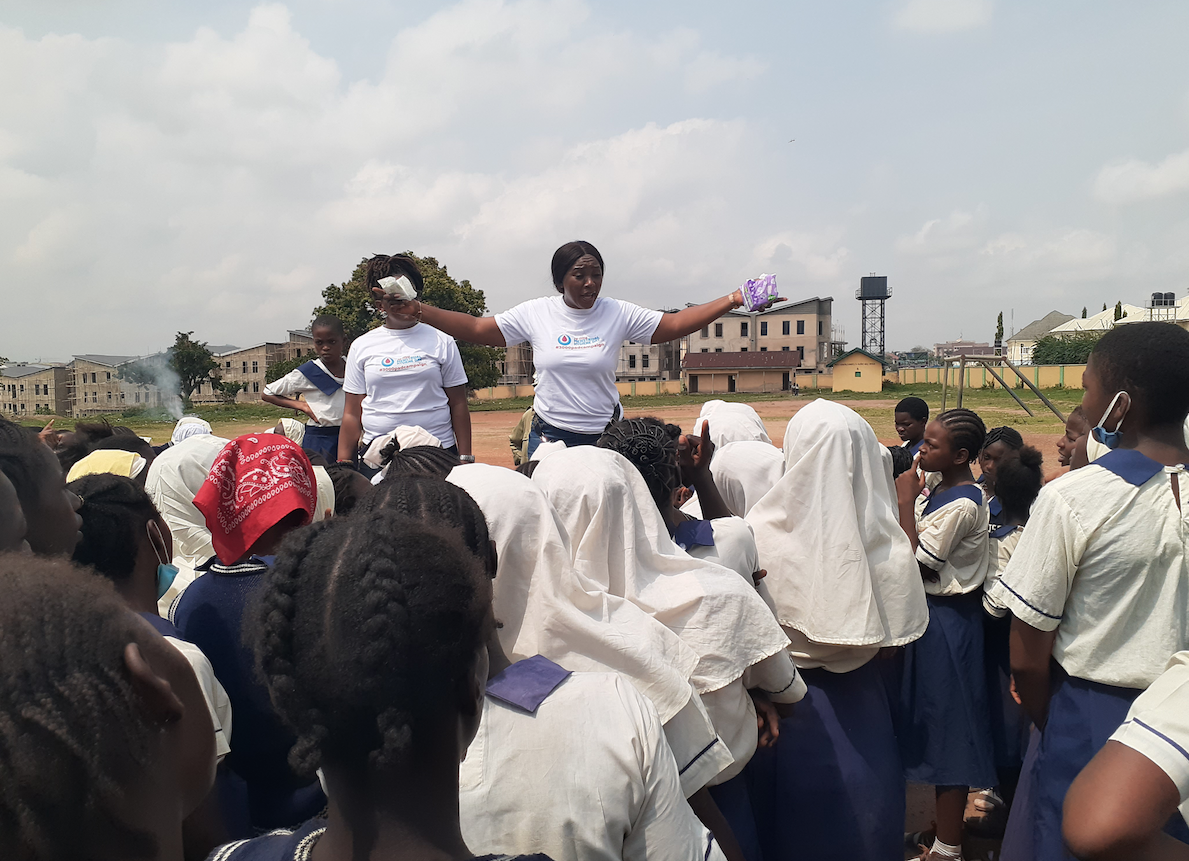
Advertisement
“During that period, it is not a shameful thing, it’s something that they should be happy about that they are growing up to become a woman. During that period, they should make sure that they bathe, change their pad regularly,” the VP said.
Miracle Joseph, one of the students, said she never knew anything about sanitary pads and was advised by her mother to wear two pairs of underwear during her period.
Advertisement
“I have not seen this thing before. I did not know it, because my mother used to say that I should wear two pants but as I have seen it today, I tell them thank you, God will bless them,” said the 14-year-old schoolgirl.
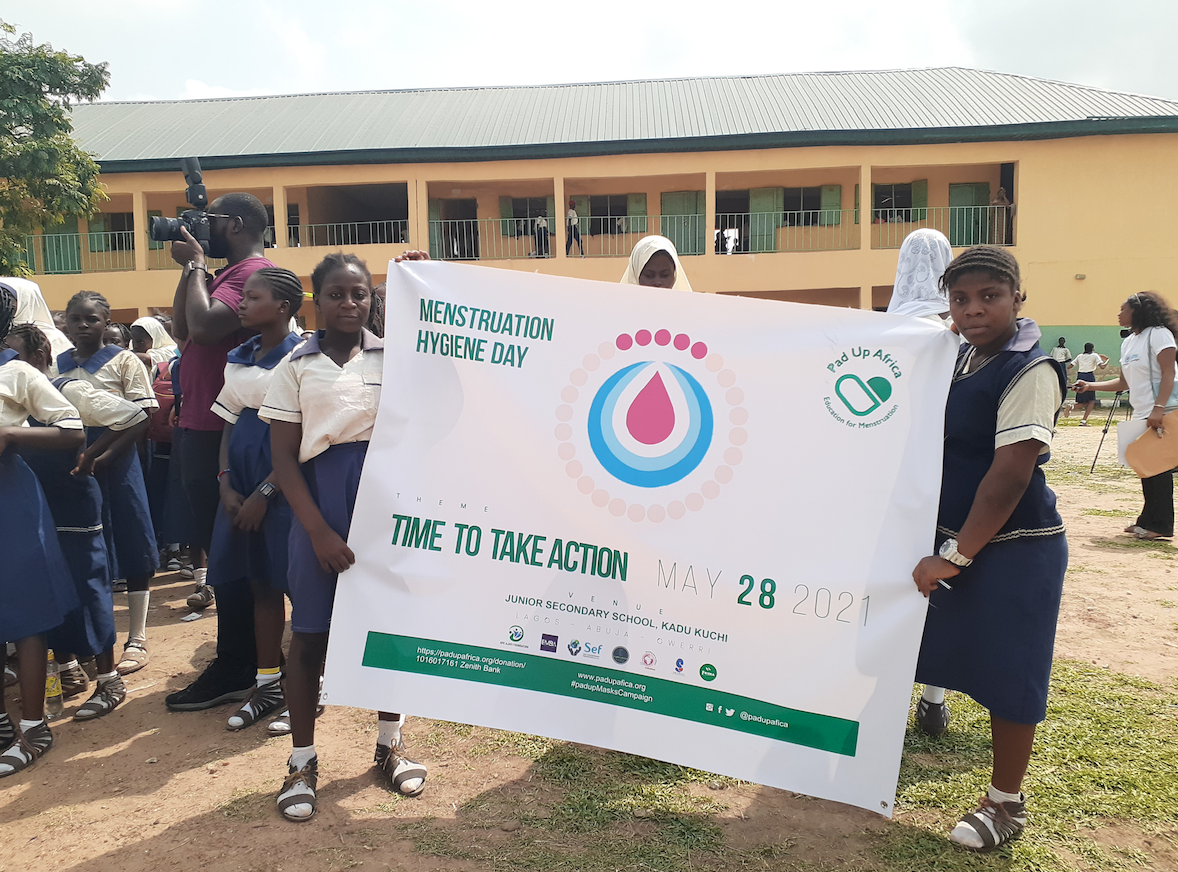
Advertisement
In the same vein, Daniel Goodness said she uses clothes for her period because her mother is busy with work and has not taught her about menstrual hygiene.
“I never had anyone tell me about period. I saw my own last week, because my mummy is not always around so I started using a wrapper,” she said.
Advertisement
‘CHURCHES, MOSQUES GUILTY OF PERIOD SHAMING’
Ayomide Ladipo, programme director of IQRA Foundation, says the stigma around menstruation must be eliminated for proper menstrual health education to take effect.
She spoke during an outreach organised by Sanitary Aid for Nigerian Girls (SANG) in partnership with Support Prevention and Freedom Organization (SUPAFO) and IQRA.
Ayo told TheCable that all hands must be on deck in the quest to strip away shame and embarrassment around the topic of menstruation while accusing religious places of aiding the stigma.
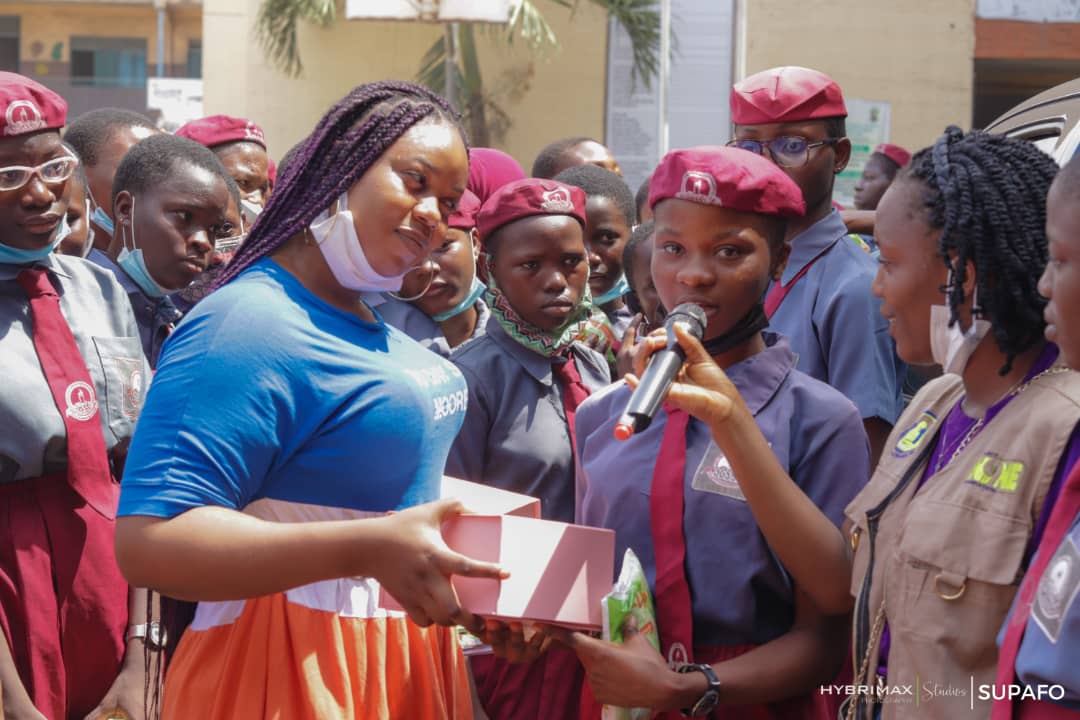
“We must destigmatise menstruation. Everybody is complicit in the act of stigmatisation. Even in our religious places,” she said.
“Churches separate women when they are menstruating and the mosques also tag them as unclean. We don’t talk about it enough and sometimes we hide from it. This mentality affects everybody. It must be addressed for menstrual hygiene education to take effect.”
On her part, Karo Omu, founder of SANG, noted the importance of menstrual hygiene education and how it can boost the self-esteem of girls.
“It’s important to continue to provide safe menstrual hygiene management education for young girls to improve their knowledge of their bodies,” she said.
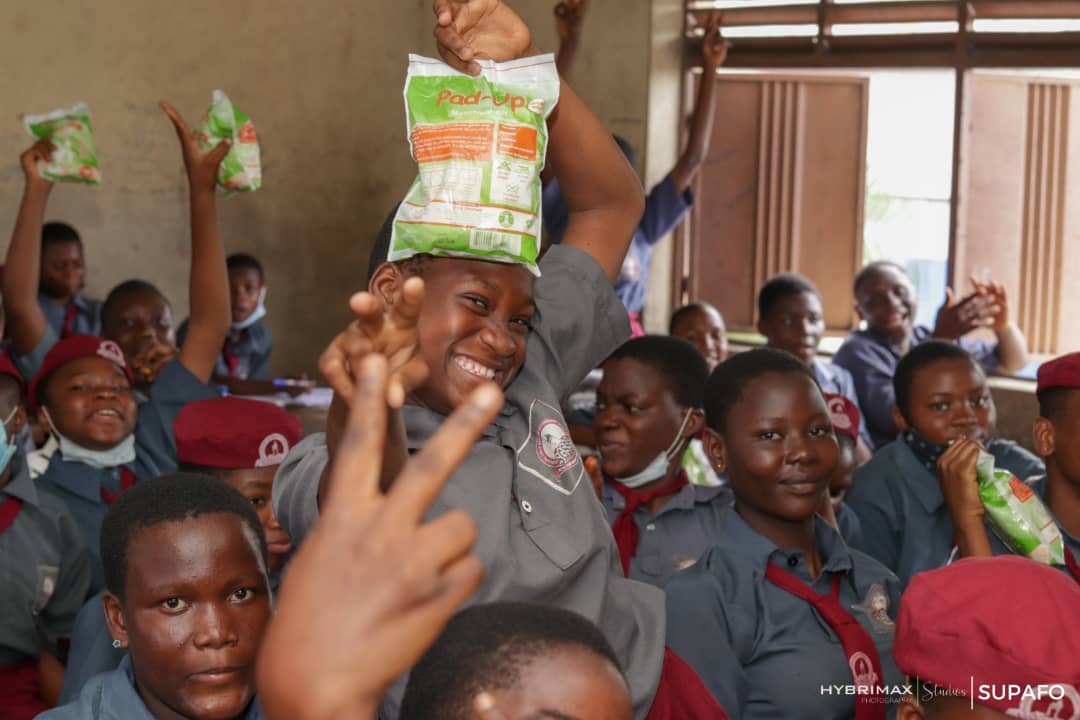
“It is critical in helping them develop healthy self-confidence and it helps burst the menstrual hygiene myths. It’s important to correct these myths and harmful practices.”
One of those who received the products, Ruth, an SS3 student, said it would ease the problems that come with her menstrual cycle.
“Pads are expensive which makes some of us use clothes at times. But this reusable sanitary pad will help solve that. Thank you for coming to our school to share these,” she said.

Ahisu Oluwaloba, a programme associate at SUPAFO, called for a subsidy on sanitary products to ensure that less privileged people can afford them.
“Just like the government does with fuel prices, there could be subsidies for sanitary pads. Because the manufacturers of this product certainly have an organisation,” she said.
“If the government should step in, regulate the prices of sanitary pads so that even common people in the masses can afford them.”
In its 2019 report on period pains, TheCable had listed subsidising sanitary products as one of the ways to make them affordable for every girlchild, irrespective of class.
1 comments
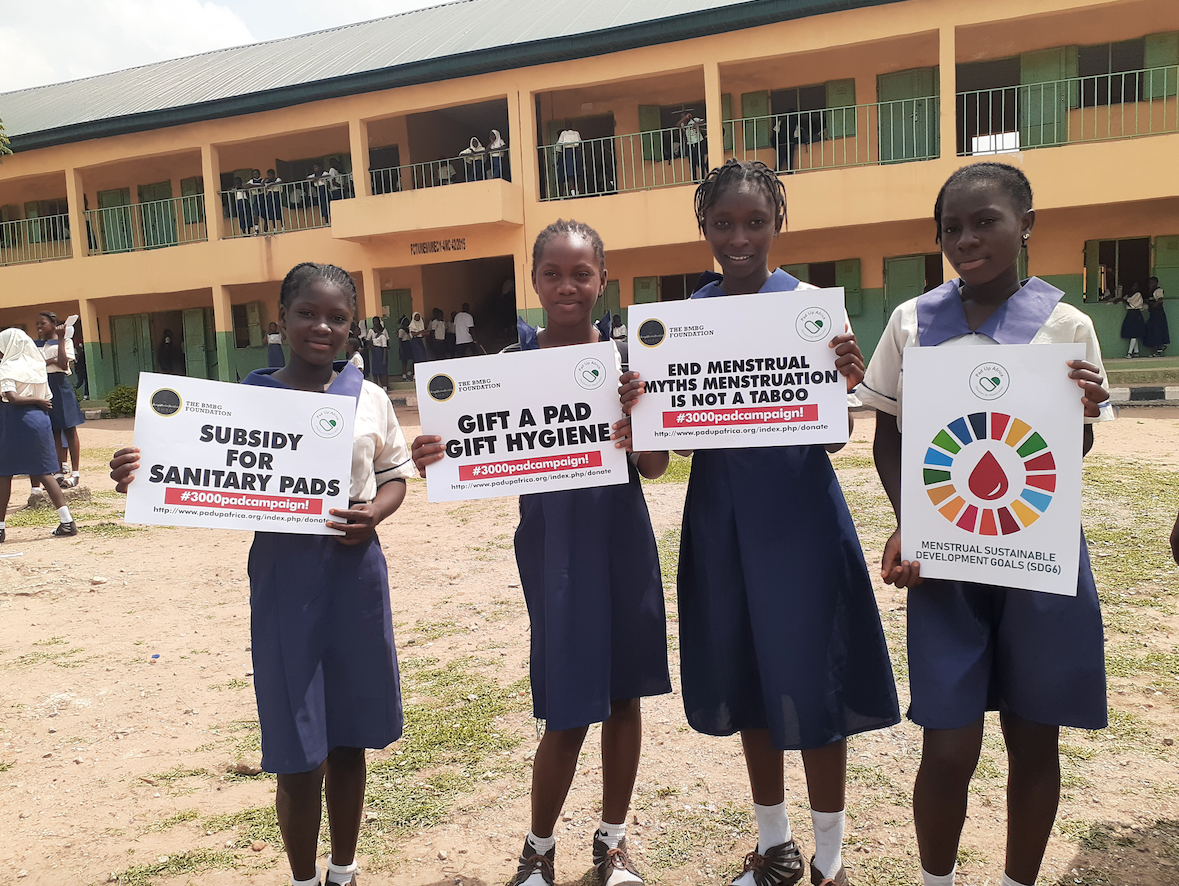

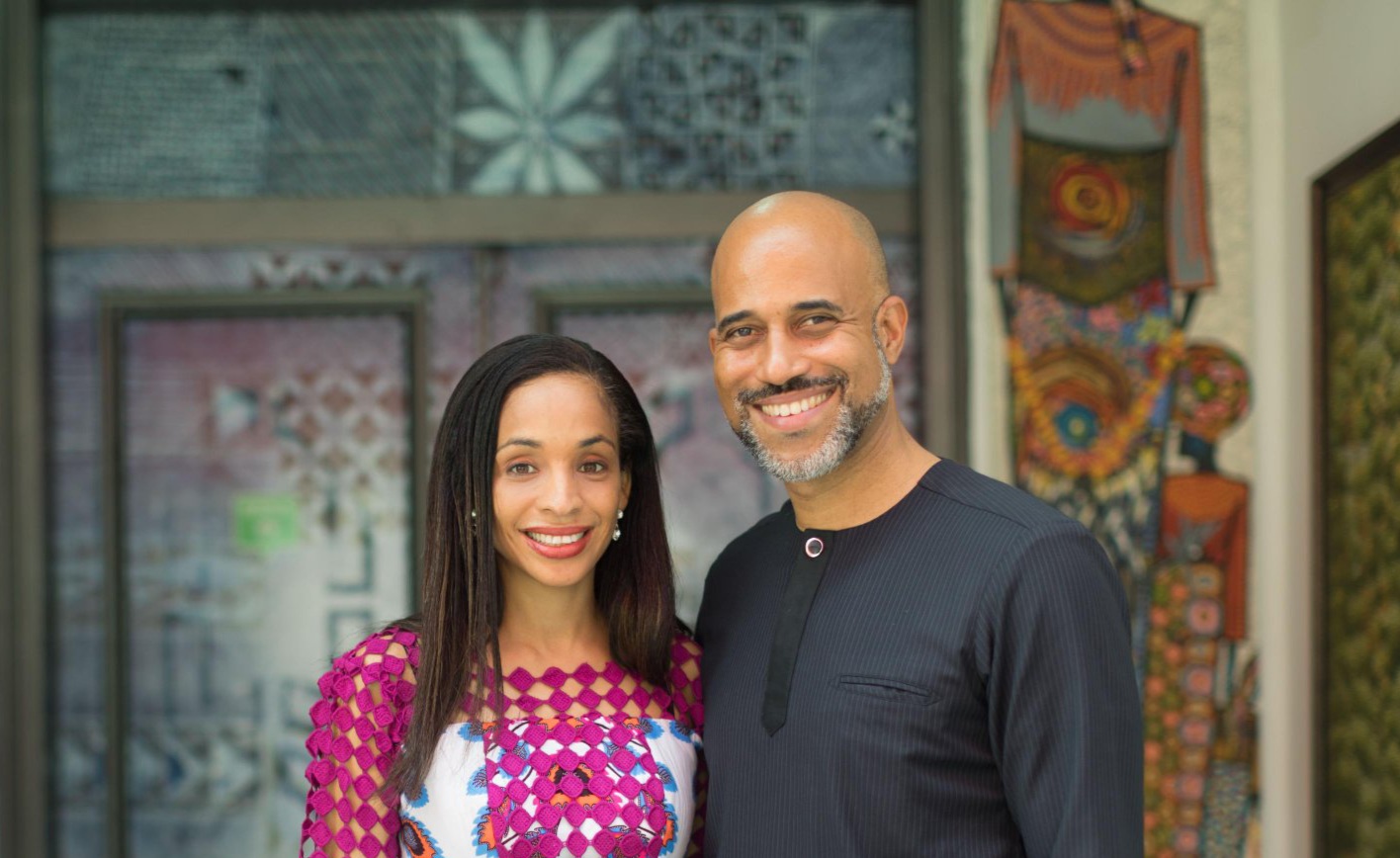




Well Done PadUp Africa